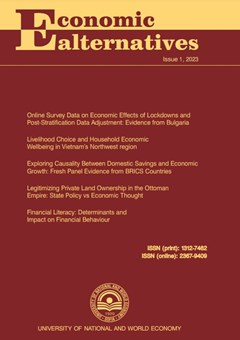Legitimizing Private Land Ownership in the Ottoman Empire: State Policy vs Economic Thought
Authors: M. Erdem Ozgur, Sule Gunduz
Abstract
In the second half of the nineteenth century, the ideas of both the liberals and the German Historical School (laissez-faire vs. protectionism) began to find an increasingly receptive audience in the Ottoman Empire. This was accompanied by a radical change in the approach to the concept of private land ownership. This article aims at discovering traces of this change in the economic literature produced by Ottoman political economists and social thinkers of the second half of the nineteenth century. The otherwise contrasting approaches of liberal writers, such as Serandi Arsizen (Sarantis Archigenes), Sak?zl? Ohannes Efendi and Mehmet Cavid Bey, on the one hand, and of the protectionist writers, such as Ahmet Mithat Efendi and Musa Akyigitzade, who were inspired more by the German Historical School (and by Friedrich List, in particular), on the other, are examined in order to display similar perceptions of private land ownership in Ottoman economic thought. State-induced private propertization of land received strong support from Ottoman intellectuals from different schools of thought, and the inviolability of property rights in land is considered sine qua non for economic development.

